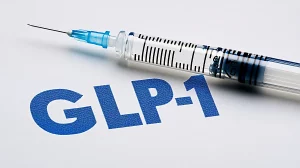These days, parents are on a mission: to create a new breed of superhuman babies with super strength and super IQs so that they can overshadow the rest of us, compete against each other for highly-coveted spots at the uber-exclusive day schools that will get them into Harvard and Yale, and someday take over the world and become president of these here United States. You know, something simple along those lines. While you can’t exactly pre-select your child’s talents, skills and abilities (although we’re sure there will be some technology for that down the road), there are other things you can do while the baby is still in the womb that are said to increase its IQ and heighten brain power.
Exercise – Okay, ladies, apparently pregnancy is no longer an excuse to not work out. Apparently, exercising while pregnant will help build the stamina that you will need during labor and the delivery, and it is also said to strengthen your baby’s brain. A study in the Journal of the American College of Sports Medicine found that the children of mothers who exercised while pregnant ended up scoring higher on language skills and intelligence tests at the age of five as opposed to the children of mothers who remained sedentary during pregnancy. This is attributed to the levels of cortisone (a stress hormone secreted during exercise) that help to promote the growth and development of the baby’s brain and major organs.
While it isn’t recommended that you get into an intense game of beach volleyball or touch football while pregnant, experts do recommend 30 minutes of moderate exercise for pregnant women on most days of the week. Fortunately there are plenty of options out there for expectant mothers, from prenatal yoga to water aerobics to group walking classes. So just keep in mind that with every step you take on your next walk-a-thon, your future kid is getting one step closer to attending an Ivy League university.
Sound – Research shows that halfway through pregnancy, a baby in the womb can hear and even respond to sound. It is recommended that to start forming an intimate bond with your child even before they are born, talk to them gently, sing softly, read or even play music. Some studies have shown that if a baby hears and recognizes a song from when it was in the womb, it will calm down a lot more easily.
One study demonstrated that “children who are exposed to classical music while in the womb are more apt to have positive physical and mental development after birth.” This experiment involved fetuses being exposed to 70 hours of classical music during their last few weeks of pregnancy. When they were studied again at around six months, the babies were more advanced in their motor, linguistic and intellectual development when compared to babies that were not exposed to any musical stimulus during pregnancy.
Music exposure can also be said to help increase your child’s creativity, memory, mathematics, language and emotional intelligence.
According to scientists, every event that a baby experiences triggers neural impulses that strengthen intercellular connections in the brain. Music exposure can also be said to help increase your child’s creativity, memory, mathematics, language and emotional intelligence. Mozart is a popular musical choice among many expectant mothers, but hold up before you blast that dubstep number by Skrillex: studies have shown that consistent exposure to “chaotic, discordant music” can actually yield a negative effect on the baby.
Supplements – Many people think that the efficacy of prenatal vitamins are hearsay, but studies have shown that taking prenatal supplements that contain B vitamin folic acid are essential to playing a key role in the formation of healthy brain cells. A study published in the Journal of the American Medical Association found that women who took folic acid earlier in their pregnancy (between four weeks prior to conception up to eight weeks in pregnancy) had a 40-percent lower risk of giving birth to a child with autism. If you aren’t a pill-popping kind of person, you can also get this healthy supplement into your body by eating the right foods, such as lentils, fortified breakfast cereals, and leafy greens such as spinach.
Likewise , omega-3 fatty acids have a big impact on the production of neruons, which are the nerves in the brain that fire electrical impulses and send messages to the rest of your body. Get more of this into your diet by eating salmon (but be careful of other fish you might be tempted to eat that could be high in mercury!), walnuts, eggs and ground flaxseed. Other supplements that are good for babies include iron, which promotes the growth of healthy red blood cells that carry oxygen to your baby’s brain – this can be found in red meat and some non-meat products, such as beans, tofu, spinach and iron-enhanced cereals.
Avoiding Negative Substances – This one is common knowledge but it never hurts to issue out a friendly reminder. Consuming alcohol can cause serious harm to an unborn baby and lead to fetal alcohol syndrome (FAS), which results in poor growth, delayed development and other physical and neurological defects. Smoking while pregnant is also a big no-no, due to the toxic chemicals like cyanide, lead and over 60 cancer-causing compounds that enter your bloodstream, which is your baby’s only source of oxygen and nutrients. Cigarette smoke and toxins can result in stillbirth, premature delivery and low birth weight, and can also affect your baby’s growth and development. Hard drugs in general should always be avoided, and while you can’t always prevent stress, it is ideal to maintain lower levels of stress while pregnant, because stress can trigger an inflammatory response in your body, which has been linked to poor pregnancy health and developmental health in babies.

















